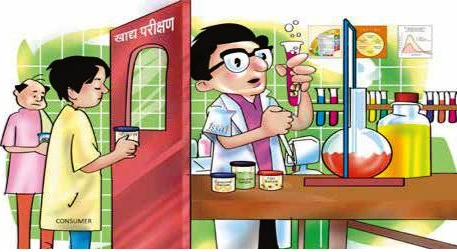Inside BENEO’s new pulse plant: pioneering sustainable protein from faba beans
Few days ago FSSAI celebrated 10th anniversary of Food Safety and Standards Act, and looking back, this journey has had its share of ups and downs, successes and controversies. As per some estimates the Indian processed food industry has annual sales to the tune of Rs 10-20 lakh crore. To regulate this business, FSSAI has strength of around 600 employees across the country with Head Office in Delhi and 5 Zonal Offices across India and hence strengthening FSSAI in terms of its infrastructure and human capital is very essential. FSSAI is also supported by various state-level FDAs with additional manpower of approximately 2,000. (Commissioners of Food Safety across India: 35, Food Analysts: 100+, Food Safety Officers: 2,000). In comparison to this USFDA has strength of almost 14,000 employees.
In current setup following positions exist:
- Commissioner of Food Safety: Every state is legally mandated to appoint a Food Safety Commissioner for implementation of food safety standards.
- Food Safety Officers: The Food Safety Commissioners are mandated to appoint Food Safety Officers for a given area, and assign to them the task of performing functions under this Act. The powers of the Food Safe-ty Officers include collecting samples of food articles and getting them tested; seizing articles which appear to be in violation of the law; and inspecting places where any article of food is manufactured.
- Food Analysts: Food Analysts are also appointed by the Food Safety Commissioner, and are tasked with carrying out an analysis on any food sample collected by the Food Safety Officer, or by any purchaser of that food product.
- Designated Officer: Every district has to have one Designated Officer. He/she has the authority to issue/revoke/renew a license for a food business, or to prohibit the sale of any food article which violates any pro-vision of the Act. This Officer could also sanction prosecution of any food business operator, or recommend the same to the Commissioner of Food Safety.
Lab infrastructure also needs an upgrade, currently we have 72 State/ public food labs, 82 NABL accredited private labs and 12 referral labs. Despite having a legal framework in place, India still struggles with enforcing food safety norms and standards effectively. The major reason for that is the insufficient number of laboratories in the country. Even today, the number of laboratories per million people in the country is far below other countries like China and US. There is also an urgent need to upgrade the infrastructure in most of our food testing laboratories. Even in terms of human capital, most Food and Drug Administrations in the states operate far below the desired capacity. In fact, in many cases, laboratories have had to be shut down due to absence of Food Analysts. Certificate courses can be offered to train lab assistants that can be employed at these and further new labs that will be set up.
For this purpose, it might be important to encourage private sector participation in the setting up and maintenance of laboratories. The Ministry of Food Processing also runs a scheme which provides assistance to states for upgradation of laboratory infrastructure. Known as the scheme for “Setting Up/Upgradation of Quality Control/Food Testing Laboratory”, assistance is provided to Central/State government organisations/ Universities and other implementing agencies/private sector organizations. In the first Budget presented by the new government at the Centre, it was announced that the Centre would provide direct assistance to strengthen states’ drug and food regulatory systems by creating new lab-oratories and strengthening existing laboratories as well.
Capacity building
Food Safety & Standards Rules and Regulations 2011 as defined by FSSAI have a very strong science and technical base. Also focus is not on agency regulation but self-regulation by Food Business Operators (FBOs). To achieve this, FBOs need to be made aware of Satefy Standards and how they will themselves benefit from implementing them. To achieve this, FS-SAI needs to build a team along with food related NGOs, associations such as Association of Food Scientists and Technologists (India), All India Food Processors Association.
The awareness programme could be rolled out with high risk, high impact places, for e.g. religious places where close to 3 crore people visit on a daily basis and consume some kind of food product in terms of prasad or a meal. Vendors around such religious places should also be roped and given training on food safety. Also some kind of an incentive system should be built in to encourage FBOs to implement his learning on an ongoing basis.

